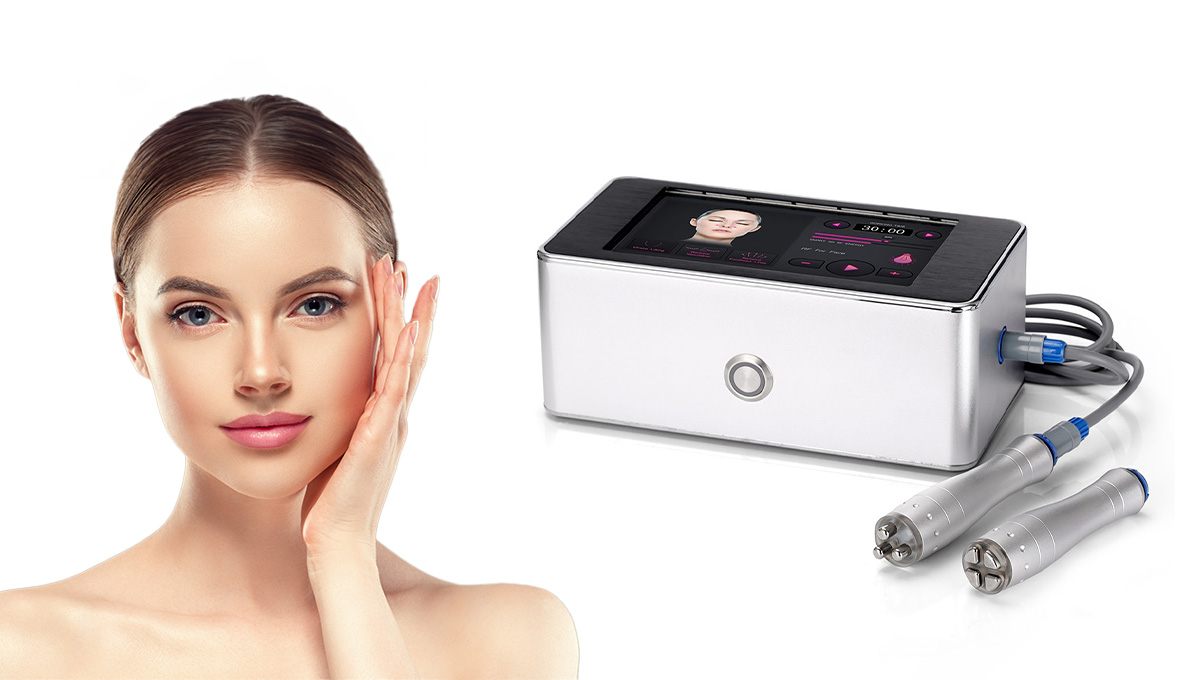 Join the group if you want a solution to clear your face of clogged pores. In addition to being a significant annoyance, clogged pores are tiny openings - a frequent skincare condition that can be difficult to treat.
Join the group if you want a solution to clear your face of clogged pores. In addition to being a significant annoyance, clogged pores are tiny openings - a frequent skincare condition that can be difficult to treat.
You’ll need to master a few basics first. Then, you can learn how to clear blocked pores. It all starts with a key question: How do I stop my pores from clogging?
Here, we’ll cover all you need to know about blocked pores. We'll cover how they form and which pore-clogging products work best to reduce them. We'll also cover skin care techniques to help you control and clear clogged pores.
Understanding Clogged Pores
Severe acne and outbreaks can result from clogged pores with debris, oils, or dead skin. According to the Cleveland Clinic, several factors, including age, genetics, and skin care habits, affect the precise size of pores.
This may result from skin congestion, including zits, blackheads, whiteheads, and cysts. If you examine your pores carefully in a mirror, you might even find that pollutants like dirt or grease have caused clogged pores, resulting in enlarged pores.
Anywhere on the body that has oil glands can have clogged pores. The chin, forehead, and nose are the most prevalent spots for clogged pores. Hence, read on for how to stop getting clogged pores.
Common Causes of Clogged Pores
1.Dead Skin
Skin cell shedding and synthesis occur regularly in the skin. When dead skin cells build up on the skin’s surface, pores may get clogged. Your skin’s capacity to remove dead skin cells from its surface slows down as you age, which can result in accumulation and a lackluster complexion.
You should carefully exfoliate your skin one to three times a week to prevent this. To manually brush away dead skin, use an actual exfoliator with microbeads. Alternatively, you can chemically exfoliate and remove dead skin cells with an exfoliating toner, revealing a smoother, more radiant complexion.
2.Too Much Oil
Sebaceous glands on your skin produce sebum, or natural oils, that nourish your skin. In an ideal world, sebum would just provide moisture and softness to the skin. On the other hand, sebaceous gland hyperactivity can occasionally result in an overproduction of oil.
This may result in dead skin cells sticking to one another rather than falling off, clogging pores. The T-zone (nose & forehead) contains the highest concentration of oil glands, so if you have oily or acne-prone skin or skin that generates excessive oil, you may have clogged pores on your chin or forehead.
3.Excessive Cleaning and Exfoliation
Cleaning and exfoliation should be vital components of your skin care regimen. However, excessive amounts of a good thing can be harmful. According to the AAD, excessive cleansing or exfoliation may deplete your skin’s essential oils, leading your oil glands to compensate and produce excess oil.
The extra oil may then block your pores. Additionally, the American Academy of Dermatology says excessive skin cleaning can irritate the skin and cause swelling and enlarged pores. Make sure to cleanse your skin twice daily, once in the morning and another before bed. When exfoliating, pay close attention to your skin.
The American Academy of Dermatology states that the frequency of exfoliation depends on your skin type and the method you choose (chemical versus physical). Before increasing frequency, start by applying an exfoliant once a week to observe how your particular skin type responds. Decrease the frequency of your weekly exfoliation if you experience irritation.
4.Choosing Inappropriate Cosmetics
As unfortunate as it may sound, some components in some of your favorite beauty products may be the source of your clogged pores. Therefore, seek out makeup and skin care products with non-comedogenic compositions made of non-pore-clogging components.
If you have skin prone to acne, avoid using oil-based face products (skincare and cosmetics) and non-comedogenic makeup, as oils are often the primary cause of clogged pores.
Does The Following Things Cause Acne & Clogged Pores?
Due to their comedogenic qualities—that is, their propensity to clog pores—a number of the items listed below may lead to acne and clogged pores:
● Coconut Oil: Although it has certain skin benefits, some people find it very comedogenic, particularly when applied in high doses or to skin prone to acne.
● Lotion and Moisturizer: The particular components in these goods determine their comedogenicity. Certain lotions and moisturizers, especially those that are thick or include comedogenic oils for a particular skin type, may block pores and cause acne breakouts.
● Vaseline: Although many people believe it to be non-comedogenic, using too much of it in acne-prone regions may make clogged pores worse.
● Cocoa Butter: Similar to coconut oil, cocoa butter can cause acne breakouts in certain individuals and can be comedogenic in larger quantities.
● Alcohol: Some alcohols, especially denatured alcohol, can cause the skin to lose its natural oils and interfere with its ability to form a barrier, which may result in a rise in oil production and lead to clogged pores.
Effective Prevention Strategies
The best prevention of clogged pores is to maintain clean, well-moisturized skin. Furthermore, the following advice may be useful:
● Every day, wash your skin with a mild cleanser.
● Maintain hydrated skin
● Choose cosmetics and other items that are labeled as oil free, non-comedogenic, or non-pore-clogging.
● Avoid using oil on your face or body, as these areas are prone to clogged pores.
● Once or twice a week, exfoliate.
● Try not to touch your face as much as you can.
● Never squeeze or pick zits.
Overusing products that produce excessive dry skin can increase oil production in the fight against oily skin. A balanced skin care regimen is ideal.
Professional Treatments To Prevent Clogged Pores
Expert treatments provide cutting-edge ways to prevent pores from clogging.
● Cryofacial Therapy: Cryofacial therapy, which uses a cryofacial machine to apply frigid temperatures to your skin’s surface, is one successful treatment. Through the constriction of blood vessels and the stimulation of collagen formation, this technique helps to minimize the appearance of pores, reduce inflammation, and tighten the skin.
● Microdermabrasion: This process helps to clear clogged pores and enhance the skin’s texture by exfoliating the topmost layer of dead skin cells.
● Chemical Peels: Chemical peels can also be used to get rid of extra oil and dead skin cells, which lowers the chance of pore clogging and promotes smoother, cleaner skin.
● Laser Therapy: It targets and reduces larger pores while promoting the creation of collagen for firmer and more resilient skin. Intense pulsed light (IPL) is another tool used in photo facials to target bacteria while decreasing inflammation, successfully stopping clogged pores and acne breakouts.
Skincare Ingredients That Help
Certain essential skincare products can help preserve clear, healthy skin and avoid blocked pores.
● Salicylic Acid: Salicylic acid, a beta hydroxy acid (BHA) with exfoliating qualities, is one such component. It dissolves dirt and oil that can cause clogs by penetrating deeply into the pores. It also serves to prevent the growth of acne lesions. It produces smoother, clearer skin by cleaning the skin’s surface and inside the pores.
● Vitamin B3: Niacinamide improves the skin’s barrier function, lowers inflammation, and helps control oil production. Niacinamide reduces the chance of breakouts by reducing inflammation and regulating sebum production.
● AHA: Alpha hydroxy acid (AHA) lactic acid acts as a mild exfoliator, clearing clogged pores and removing dead skin cells. Because of its moisturizing qualities, lactic acid is a good choice for people with dry, sensitive skin who could experience pore blockages.
Conclusion
Keeping clear, healthy skin requires preventing clogged pores. Ingredients like lactic acid, niacinamide, and salicylic acid can help minimize breakouts, control oil production, and clear pores in your skincare routine.
Regular skincare routines, including frequent cleansing, gentle exfoliating, and the use of non-comedogenic products, can show you how to prevent clogged pores.
To get a smoother, clearer complexion, remember to prioritize the health of your skin by using these recommendations. When you give your skin the love and care it deserves, it will thank you.
FAQs
1.What do dermatologists recommend for clogged pores?
Dermatologists usually advise unclogging pores with skincare products that contain alpha hydroxy acids (AHAs), retinoids, or salicylic acid. Frequent exfoliation aids in pore cleaning and the removal of dead skin cells.
It is also recommended to use gentle cleansers and non-comedogenic moisturizers. Dermatologists may suggest in-office procedures such as peels with chemicals, microdermabrasion, or extractions for chronically clogged pores.
2.How can I tighten my pores on my face?
● Choose water based products.
● Cleansing one’s face in the morning and at night.
● Selecting cleansers with gel bases.
● Removing dead skin.
● Hydrating daily.
● Putting on a clay mask.
● Always take off my makeup at night.
● Applying sunscreen.
3.How to open the pores on the face?
The most crucial element in maintaining the cleanliness of your pores is proper face cleaning. Exfoliation, face masks, and steaming treatments can all aid in pore unclogging.
4.How to shrink the facial pores? Can Ice be used?
Ice’s freezing properties force blood vessels beneath the skin to constrict, making smaller, tighter pores appear. However, it is believed that ice cubes can shrink the pore size because they efficiently clean dirt and clear the pores, restoring them to their natural size.


